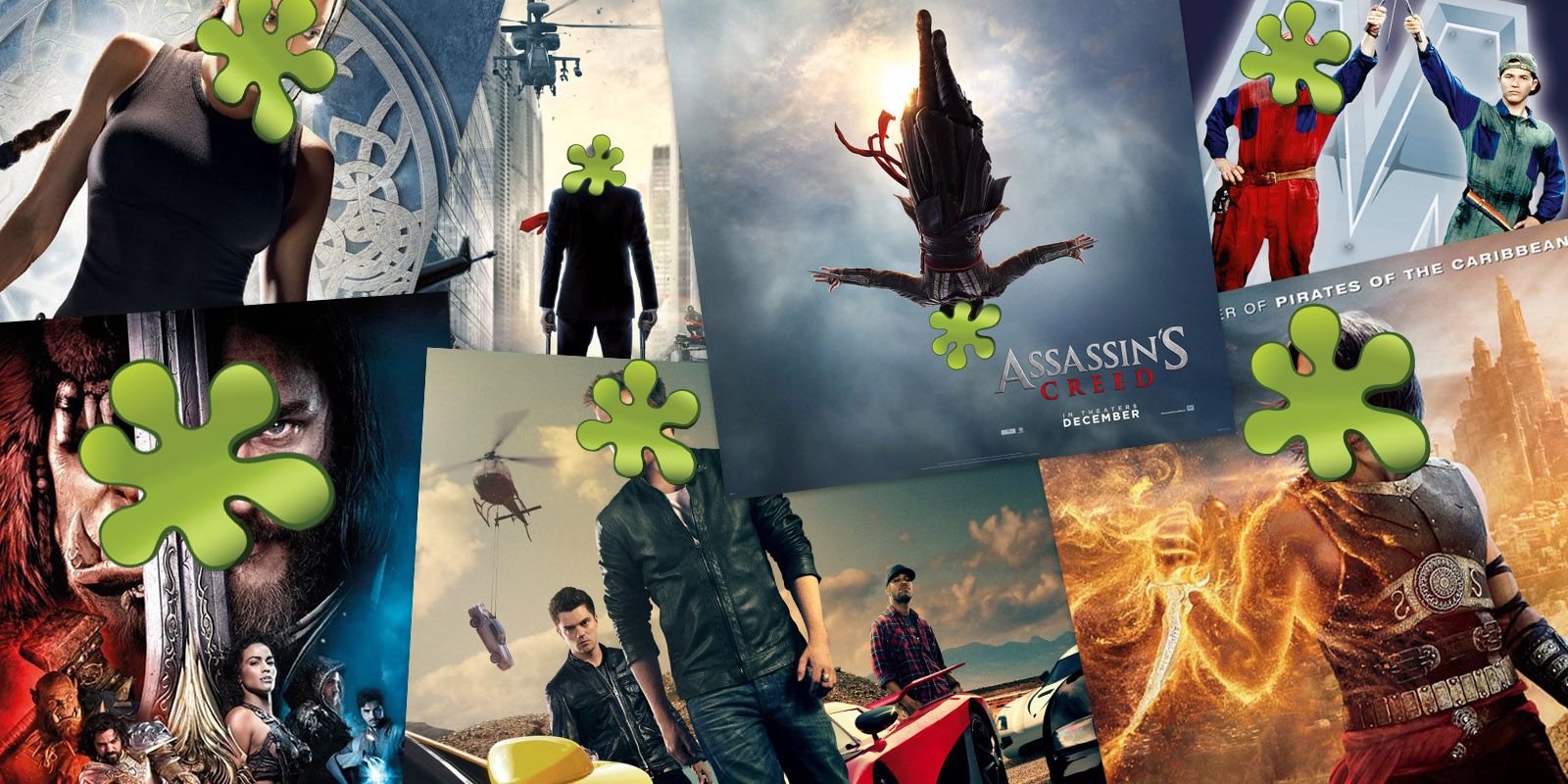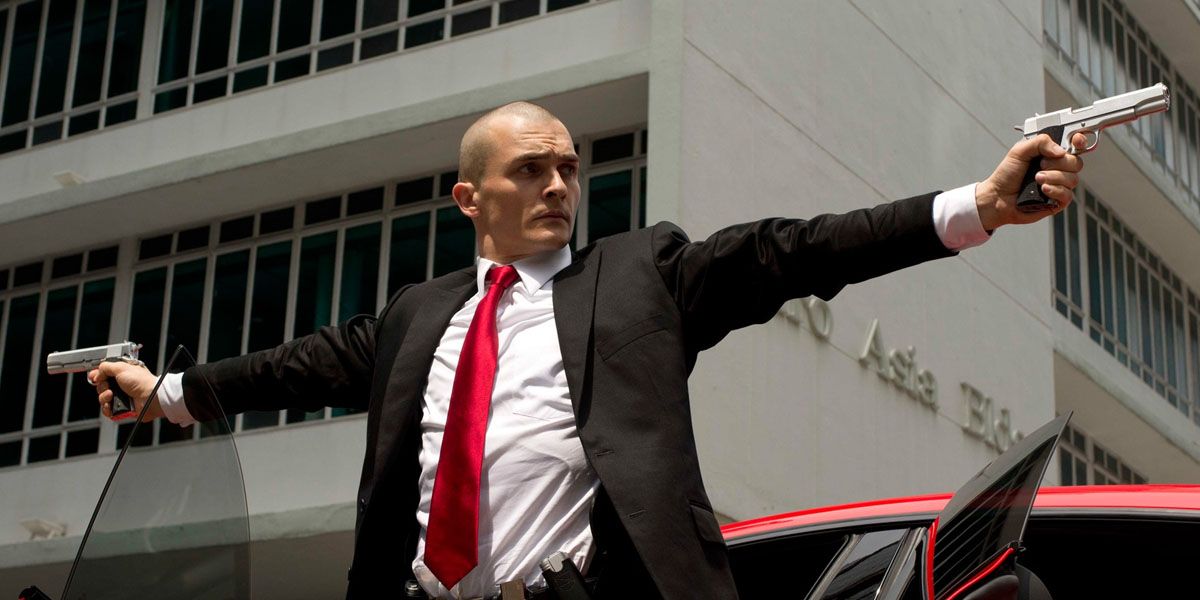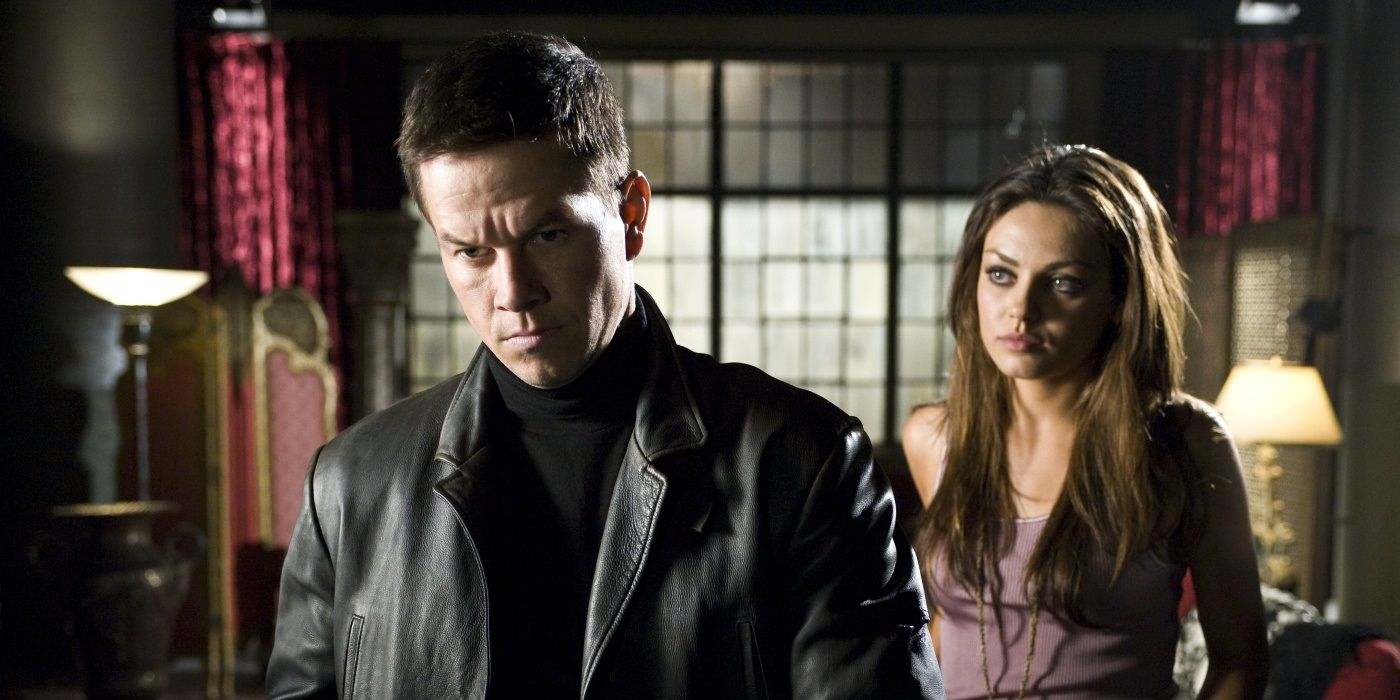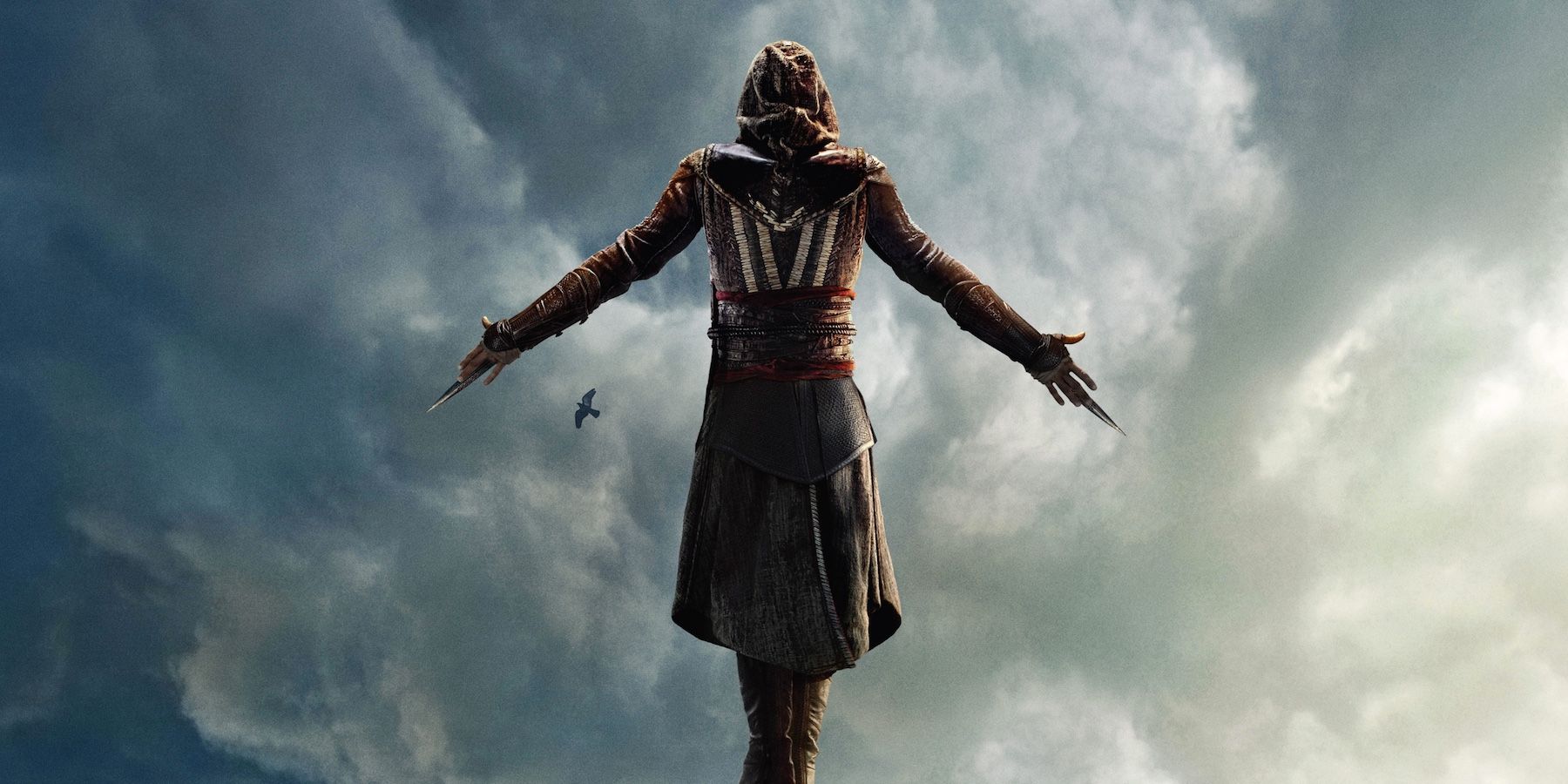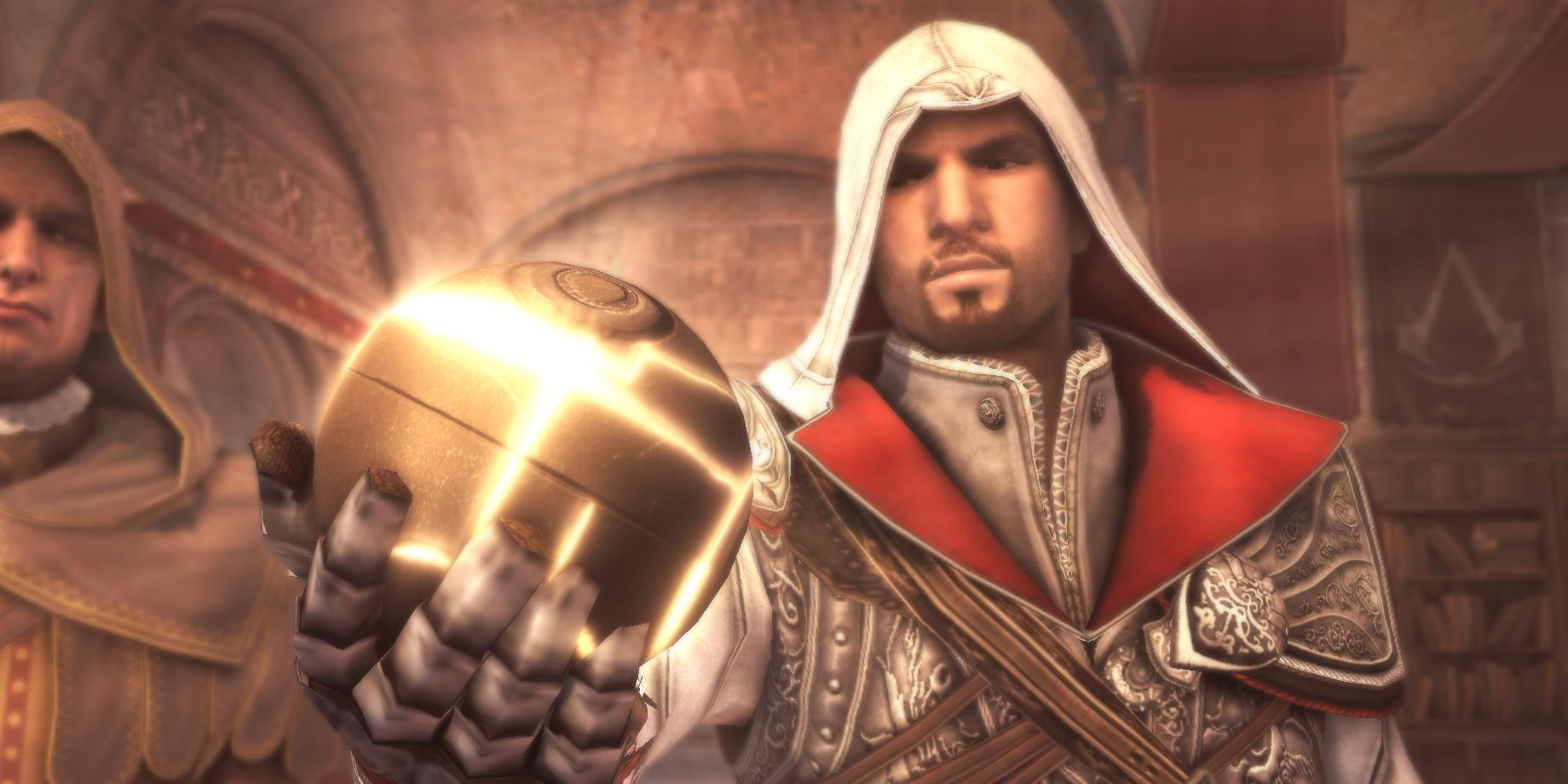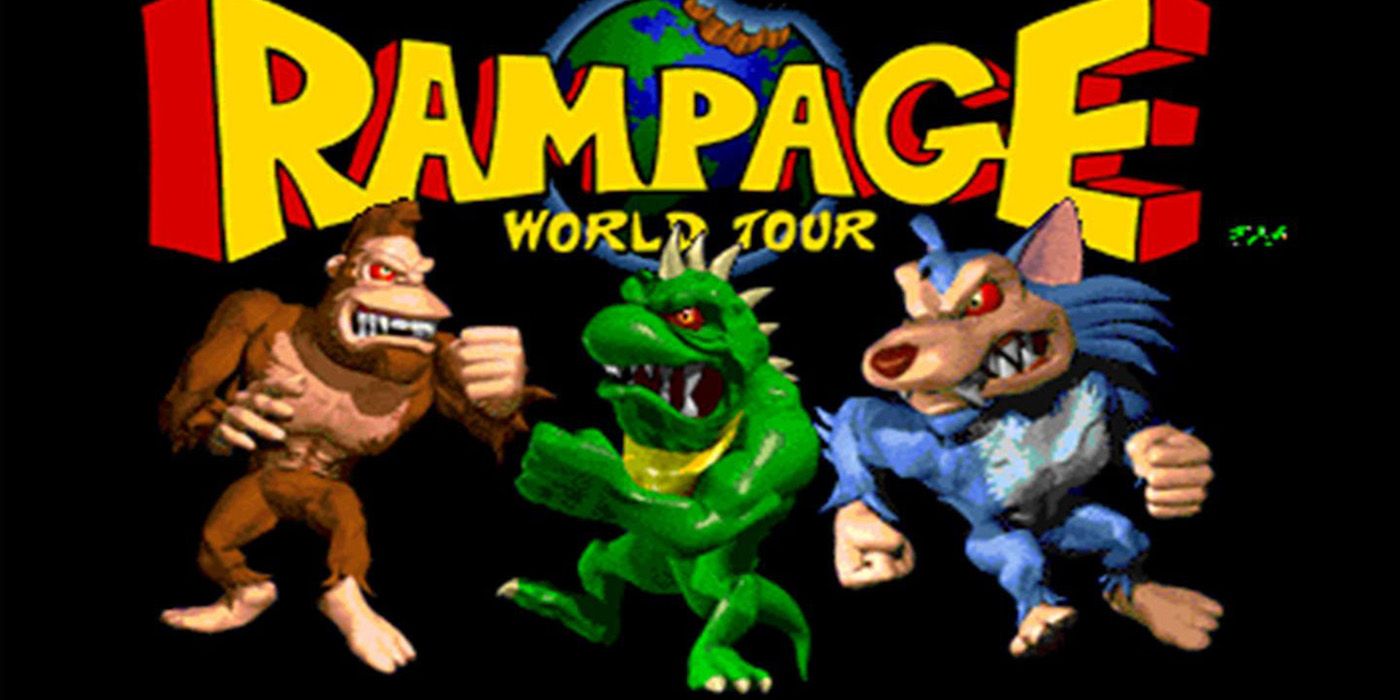1993 saw the release of Super Mario Bros., the first feature-length live-action motion picture based on a video game franchise. The film was a box office bomb, grossing a paltry $20 million from a budget nearly 2.5 times that amount. In the decades since that debacle, we are disheartened to report that not much has changed.
While there have been some middling successes, movies based directly on video games have failed to break out at the box office or receive reception from fans and critics. To date, the highest-grossing domestic hit in that realm is 2001's Lara Croft: Tomb Raider, which took in a solid $131 million, and helped to bounce its rising star, Angelina Jolie, straight up to the A-List. However, even that film's success comes off as an anomaly in hindsight, since its sequel, Lara Croft Tomb Raider: The Cradle of Life, only brought in half as much money as its predecessor.
2016 brought no less than five movies based on video games. Excluding Kingsglaive: Final Fantasy XV which didn't receive a wide release, that leaves Ratchet & Clank, Warcraft, The Angry Birds Movie, and Assassin's Creed. Of these, Ratchet & Clank was an outright bomb; Warcraft tried to save face by flaunting its international take over its floundering domestic numbers, and it's still too early to tell if Assassin's Creed will turn out to be a $100 million domestic hit, but its chances are up in the air. It's set to eke out a mere $30 million over the Christmas weekend, and with the critical thrashing it's received, the film may not hold on for very long, especially going up against competition like Passengers, Why Him?, and the continuing dominance of Rogue One. Of 2016's video game movies, only Angry Birds, of all things, can currently claim to be any kind of decent financial success, earning $107 million domestically against a modest budget of $73 million.
Why has Hollywood been unable to penetrate the market on video game adaptations? Why did Angry Birds and Tomb Raider succeed while Warcraft and Assassin's Creed failed? Let's dive deep and search for the answer to the question: Why are video game adaptations (still) failing?
Catastrophic Critical Consensus
Simply put, the critics have not been kind to movies based on video games. As of this writing, Assassin's Creed is sitting with an unimpressive 20% on Rotten Tomatoes. In fact, across the entire site, the highest rated video game-based film is 2001's Final Fantasy: The Spirits Within, which holds a mere 44% approval rating. A recent trend has been to position any given video game movie as the "first" great video game movie. In 2015, the producers behind Hitman: Agent 47 made the bold claim that it would be the one to break to mold and earn critical and commercial acclaim... It wasn't the first to have such lofty aspirations, and it certainly wouldn't be the last. However, Hitman: Agent 47 failed to make decent bank at the box office, and was thrashed with just 8% on Rotten Tomatoes. Though the film is building a mild cult following due to its hard-hitting R-rated action (from the directors of John Wick, who worked second unit here), it certainly wasn't the game-changer some were expecting it to be.
In 2016 that same narrative has played out three times with Ratchet & Clank, Warcraft, and now Assassin's Creed. Ratchet & Clank had a unique gimmick, which was that it was releasing at (almost) the same time as a new game in the series. Together, they would serve as a remake of the storyline of the original 2002 game, but with modern visuals and gameplay. Unfortunately, while the game was well-received, the movie crashed and burned at the box office, and sits at a meager 18% on Rotten Tomatoes. Ratchet & Clank was produced on a budget of just $20 million so while it tanked it's not a repeat of the financial disaster that was Final Fantasy: The Spirits Within, which earned just $85 million worldwide on a budget of $137 million.
Likewise, the stakes were much higher for the long-in-development (and long overdue) Warcraft, which boasted a blockbuster production and marketing budget and was barely able to break even, even factoring its unexpected success in China, where it grossed $220 million, or more than 4.5 times its take in the United States. If the current projections for Assassin's Creed hold true, it will also be dependent on overseas grosses to justify the cost of any prospective sequels.
Lack of Effort
It's no secret that so many of the video game movies to date are cheap B-grade cash-ins. The budgets are usually low, the talent behind the camera is often lacking relative to other genre fare, and the studios are uninterested in capturing what made the games special, even those which were ripe for cinematic greatness. Take Max Payne for example. One of the most esteemed action games of all time, Max Payne and its two sequels relied on a tight film-noir narrative and well-written characters, in addition to bullet-time action and John Woo-inspired gunplay.
One of the most unsettling aspects of the game was the effects of the drug, Valkyr. When Max is given a dose of the devilish concoction, he enters into surreal dream sequences which delve into the innermost aspects of his subconscious. The dream sequences in the games are tremendous accomplishments in writing and visual language, and could surely have translated beautifully into film... Instead, the film lazily wastes the concept by turning the effects of Valkyr into being harassed by static CGI cartoon creatures. It's almost as if someone behind the scenes of the production assumed that Max Payne, regardless of its roots in film noir and psychological drama, would be easier to sell to the gaming audience if it included obtrusive CGI elements. After all, video games are all computer graphics, so the movies need superfluous CGI creatures, right? The fact that these movies are based on games often comes off as a hindrance, rather than a boon, to the final product.
Unfortunately, given the dearth of financial hits in the video game movie genre, it's hard to argue against movie producers' hesitation at pouring hundreds of millions into these movies. Along with high-profile duds like Warcraft (Budget: $160 million) and Prince of Persia ($200 million), there are even more lower-risk projects which failed to pay off. Two attempts at a Hitman movie came to naught, as did the action-horror hybrid Doom, and the aforementioned Max Payne, to say nothing of classic '90s duds like Street Fighter and Double Dragon. Video game movies are a tough sell to Big Hollywood, and it will take an undisputed, bona fide smash hit to change that status quo.
Assassin's Creed's Marketing Blues
There was a lot riding on Assassin's Creed to be the hit which would change the landscape of movies based on games. It is set in the continuity of the games, rather than an adaptation of any of specific title in the series, and has great potential for expanding the brand's appeal, especially to non-gamers. Unfortunately, the first trailer sent mixed messages. Coupling the stunning imagery of 15th century Spain and the decidedly analog sensibilities of the era with electronic music by Kanye West was a bizarre choice, to put it mildly. Further trailers and television spots did little to appeal to anyone who didn't already know the core mythology of the franchise, struggling to fully explain the function of the Animus or the eons-long war between Assassins and Templars. Regardless of how the finished film tackled these elements, the marketing department definitely dropped the ball when it came to selling Assassin's Creed to general audiences and did nothing creative or innovative in a genre built on creativity and innovation. Strangely, this is the same studio winning acclaim for pushing the envelope in marketing Deadpool earlier this year - a film whose star is also its producer.
In interviews, the cast and crew worked their hardest to hype Assassin's Creed as the first great video game movie, and the talent involved inspired confidence; big name stars like Michael Fassbender, Marion Cotillard, Jeremy Irons, and Michael K Williams, and director Justin Kurzel, hot off his stunning adaptation of Macbeth, starring Fassbender. Unfortunately, the marketing was content to settle for "Video games! Dubstep! CGI Eagle! Weird Animus Claw!" and the press circuit was too traditional and uninspired, gaining little buzz and attention.
Meanwhile, one of the biggest trailers in recent memory was the one for Transformers: The Last Knight. This trailer features a sweeping narration by Anthony Hopkins, describing the conflict between man and alien machines, showing footage of battle scenes across the centuries, culminating in an evil Optimus Prime beating the tar out of Bumblebee. We can't say how representative those grand images are of the final film, but it's certainly the type of epic and provocative teaser which is great for connecting with all different types of viewers. It's funny, since Transformers is basically understood to be big, loud, and dumb, while Assassin's Creed has potential to be a cerebral and intelligent blockbuster, and their respective trailers are the exact opposite of what we would have expected from the two franchises.
Assassin's Creed Is So Last Year
It takes time to make games and movies, and Hollywood doesn't want to jump on the video game bandwagon until it's a proven success. And it'll happen eventually, and when it does there are many, many scripts and rights being held across Hollywood just waiting for the greenlight.
The first Max Payne game released in 2001, and its sequel dropped in 2003; the Hollywood movie launched in 2008, right in the middle of the nearly decade-long gap between Max Payne 2 and Max Payne 3, which finally saw the light of day in 2012. Likewise, the upcoming Tomb Raider movie, starring Alicia Vikander and Walton Goggins, due out in 2018, is expected to be based on the 2013 Tomb Raider game, which will be five years old by then. Hopefully, Lara Croft's video game incarnation will still be relevant by then, and not in the midst of yet another hiatus/reboot (the 2013 title was the character's third hard reboot since her 1996 debut).
The very first Assassin's Creed game launched for Playstation 3 and Xbox 360 way back in 2007. After its massive success, publisher Ubisoft aimed to make AC an annualized franchise, with titles releasing every year from 2009 to 2015. However, due to the law of diminishing returns, recent titles like 2014's AC: Unity or 2015's AC: Syndicate didn't sell quite as well as expected, and were called out by critics for their rushed development cycles and static narratives. Wisely, Ubisoft decided to give the series a rest instead of burning the brand to the ground, opting not to release a game in 2016, giving the franchise a chance to breathe and recoup for a bigger and better relaunch in 2017 or even later. Plus, a break like this gives lapsed fans of the series a chance to dive into the games they missed in the interim.
The only problem is, now there's no game to launch alongside the movie and the movie is releasing seemingly in a time window when interest in the brand is arguably at an all-time low. Assassin's Creed is a multi-media universe, spread across games, comic books, novels, web series, and, now, even movies. In 2016, the Assassin's Creed brand is at its least relevant since the franchise began, and the film is lacking the multi-media synergy which should come naturally to a franchise like AC. Many would argue that a movie like this should have been released three or four years ago; after all, even the 2007 original pointed to December 21st, 2012, as the date of the franchise's endgame. For many, the movie's release date of December 21st, but four years removed, is just too little, too late. Based on the film's projected box office results, it's hard to argue against them.
The Future
Its intentions were pure, but it's looking like Assassin's Creed will fall victim to the status quo it tried to defy. Maybe making a video game movie is like forcing a square peg into a round hole; games are games and movies are movies, and that's just the way it has to be. Maybe.
But it will only take one big-time success for video game movies to take off the way comic book movies did at the turn of the century with X-Men and Spider-Man. So, Warcraft wasn't that hit. It looks like Assassin's Creed isn't going to be that game-changer, either. But maybe the first true blockbuster video game movie is just around the corner. 2018 will see the release of the Tomb Raider reboot, as well as Dwayne Johnson in Rampage, based on the wacky arcade title from ages past. After that, we have Minecraft and Uncharted.
Maybe they will all fall flat on their faces. But maybe one of them will break out and become the massive success that inspires a movement of thoughtfully produced, big-budget, films based on games; films which don't aim to leverage their beloved source material for a quick buck, but strive to make a solid experience which can stand on its own two feet, regardless of any video game connections. Maybe it's just a pipe dream, but we think it's just a matter of time before it happens; either way, it's a solid bet that Hollywood won't stop chipping away until it strikes box office gold.

